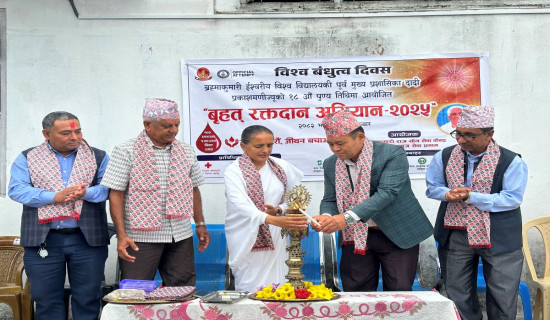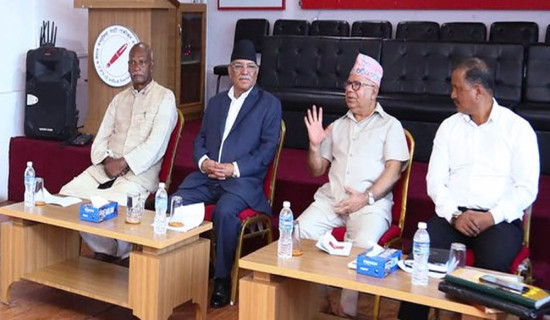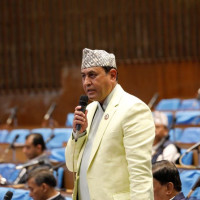- Saturday, 23 August 2025
Business Formalisation
The economy in high-income countries and that in low-income ones are starkly different. While the former is typically a formal economy, the latter is largely an informal one. In the former, people have formal jobs in which they have specified working hours, wages, healthy working conditions, and they pay taxes. In the latter, however, a few workers have formal jobs, but most have informal jobs, which are largely unskilled and labour-intensive. The businesses offering informal jobs need little money to set up and run, but they offer little or no protection to the workers. And neither pays taxes. Unregistered businesses, such as street vendors and hawkers, are examples.
Being a low-income country, Nepal's economy is largely informal. The vast majority of the workforce is in unorganised and informal sectors with poor working conditions. The pay is paltry and the perk scanty, if at all. Many workers lack stable jobs and are forced to do odd jobs wherever or whenever available. Making matters worse, these jobs rarely, if at all, ensure security of income or employment. All these factors leave a worker in the informal economy disproportionately vulnerable to even minor economic shocks, let alone a major upheaval like the COVID-19 pandemic, making their life a precarious existence.
To change things for the better and protect workers, an initiative, 'Formalise Your Business (FYB)', is being implemented by the government at various levels, especially the provincial agencies, the International Labour Organisation (ILO), private sector agencies, including the Federation of Nepalese Chambers of Commerce and Industry (FNCCI) and its local district and municipal chapters, and Joint Trade Union Coordination Centre (JTUCC). The FYB programme has been acting like a practical tool that provides entrepreneurs and business managers with the necessary information and guidance to facilitate their transition to formalisation.
A National Formalisation Committee (NFC) is working on the national formalisation action plan that also includes the development of the National Strategy to that end. It is expected to engage all concerned stakeholders from the government and non-government sectors in spearheading the initiative. As part of the drive, over the past six months, various training programmes have been launched for beauticians, pickle producers and other businesspeople. It involves making trainee entrepreneurs aware of the benefits they are entitled to, among which the ones are those offered by the government as well as the banks and financial institutions (BFIs).
Business formalisation entails registering informal enterprises – those operating outside the legal and regulatory framework – with government authorities and complying with laws and regulations. But it is much more than registration; it's also being aware of the tax system, social security, consumer interest, workplace safety and labour rights. The formalisation of business brings benefits like access to finance, legal protection, market access, improved business practice, decent work and economic growth.
Business formalisation is a win-win for both workers and the government. While the former get benefits they are entitled to by law, the latter gets revenues in the form of the taxes the former pay. By all accounts, Nepal is making significant strides in its efforts to transition informal businesses into the formal economy, aimed at fostering economic growth, promoting decent work, and ensuring social justice. In the long run, the challenge is to ensure that all workers have a basic minimum wage and social security.

















